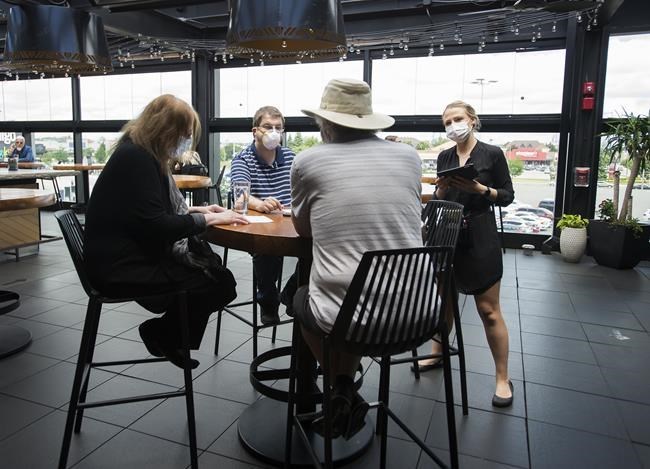Ever since Jessye Grundlingh immigrated to Canada from South Africa a decade ago, restaurant work has been a major part of her professional career.
Her work as a server gave her a dependable income while she worked to grow her own DIY crafts business, and it helped pay for her tuition fees at the Ontario College of Art & Design University.
But when she lost her job at a Toronto restaurant where she’d worked for 10 years, Grundlingh decided it was time to leave work in hospitality for good and pivoted to scaling up her crafts business.
“When the pandemic hit… it just put pressure on me to seriously scale my business in a different way,” said Grundlingh, who also ended up moving out of the city for the much smaller town of Colborne, Ont.
“I had to make up for the lost income.”
With restaurants operating at reduced capacity for more than a year now, Grundlingh said she isn’t the only one looking to other avenues for work, and it could lead to a gap in the workforce when restaurants eventually do reopen.
“I see a lot of my other co-workers exploring other personal interests and I’m sure there are people in this industry who’ve gone back to school at this time or decided to revisit their previous industries or backgrounds,” she said.
“It is hard to find servers with experience and it is a job that requires multiple years of experience: It’s a high stress job, it requires a lot of soft skills that you’re not going to get anywhere else, and it is difficult to train people.”
However, Todd Barclay, President and CEO of Restaurants Canada, said he expects that there will not be difficulties hiring in the short term when restaurants eventually reopen, because the number of industry workers out of work — estimated at 320,000 — is so high
But Barclay said the industry already had tens of thousands of vacant positions across the country before the pandemic, and those vacancies will need to be filled in the years to come.
“In the short term we're going to be fine because… there’s still a lot of people who are unemployed in our industry who are looking forward to getting back,” said Barclay, who’s organization represents restaurants ranging from local independent outlets to national chains.
“But over the longer term as things get back to normal we’re concerned because there was already an (understaffing) issue prior to the pandemic.”
He said people should consider a career in the restaurant industry as an enriching experience, and pointed out that it’s a diverse field with many workers being women, people of colour and recent immigrants.
“The industry actually represents a significant opportunity for people to grow and develop their careers,” said Barclay, who also pointed out that it represents an opportunity for students.
“The concern is just once we get going again, will people choose this industry based on what happened over the last 12 months.”
That's why he said his organization is advocating for restaurants to be a strong part of the economic reopening in jurisdictions across Canada.
Barclay pointed out that officials have said a controlled restaurant environment is safer for COVID-19 than in-home gatherings, where there often aren’t safeguards like distancing in place.
“We believe and we know that we can be a safe part of the reopening economy,” he said
But when restaurants are at full capacity down the road, Grundlingh said she expects restaurants will have their work cut out for them to replace longtime staff.
“The servers that have been at our restaurant for years are the toughest servers to replace,” she said.
“It’ll be tough to find servers to meet those skill sets that have been developed over many years.”
This report by The Canadian Press was first published March 30, 2021.
Salmaan Farooqui, The Canadian Press



